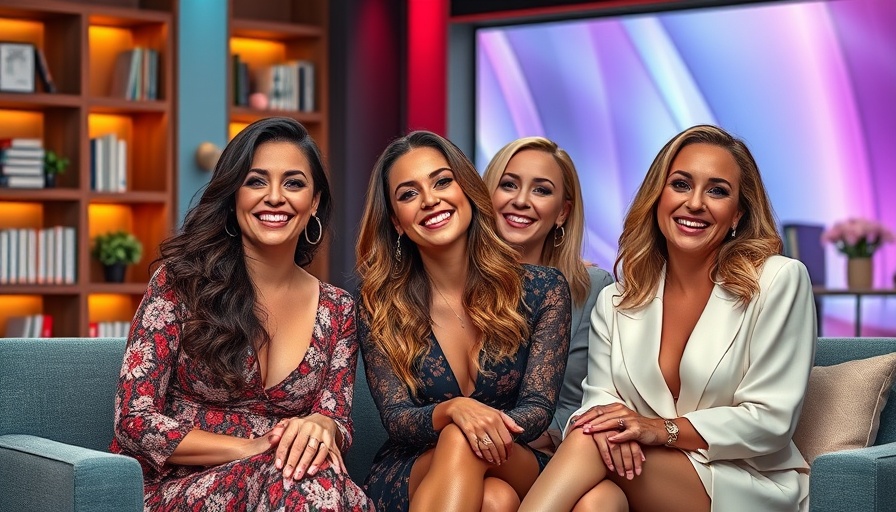
Drama Unfolds: Porsha and Shamea's Reunion on 'RHOA'
The latest episode of 'Real Housewives of Atlanta' (RHOA) unfolded like a gripping soap opera, featuring intense moments between fan-favorites Porsha Williams and Shamea Morton. The reunion, aptly titled 'Virtual Reali-Tea,' showcased not just personal grievances but revealed deeper familial ties that resonated with viewers across the board.
Exploring the Roots of the Conflict
From the outset, the tension between Porsha and Shamea was palpable. Audiences quickly learned that their friendship was frayed due to underlying issues involving their respective mothers—issues that may seem trivial on the surface but strike a deeper chord within the context of their histories. By bringing family dynamics into the mix, the show illustrated a universal theme of family loyalty, a topic that resonates well beyond the confines of reality television.
A Moment of Vulnerability
At the heart of the reunion was a poignant moment that highlighted vulnerability and the need for reconciliation. Both women confronted their emotional baggage, bringing to light the impact of their mothers' actions on their own lives. This reflection was as much a personal journey as it was a reality TV moment, giving audiences a glimpse into the lives of these women that they may not have previously considered. The collective empathy for their struggles may have shifted viewer perceptions on how familial expectations can therefore shape adult relationships.
Connection Beyond Drama: Why This Tells Us More
The RHOA episode engaged its audience on multiple levels. It polarized fans while simultaneously fostering a sense of community among viewers who connected with the struggles depicted. Digital platforms flooded with discussions, memes, and heartfelt messages aimed at both women, demonstrating how reality TV serves as both entertainment and a reflection of real societal issues—be it familial ties, friendship dynamics, or the often tumultuous relationships that reality stars share with their families.
Cultural Significance of Reality TV in Modern Society
Reality TV has evolved into a definitive cultural lens through which audiences engage with societal issues. Shows like 'RHOA' transcend mere gossip and entertainment, provoking dialogues surrounding identity, race, and societal roles. The discussions born out of episodes like this serve to not just entertain, but also educate viewers, prompting them to reflect on their own lives and relationships. In the era of social media, these platforms act as a community of discussions, where insights into family dynamics and the pressures of relationship management are shared and debated.
Future Predictions: What's Next for RHOA?
As RHOA continues to captivate audiences, one can only wonder how future episodes will evolve in showcasing the intricate lives of its stars. What seems evident is the growing recognition of the psychological facets of the cast's interactions, suggesting that forthcoming segments may deepen the premise of personal storytelling. These arcs may not just reflect drama but could potentially pave the way for healing—both for the participants and the viewers caught in this cultural phenomenon.
Conclusion: Engaging with Reality TV Ethically
'Real Housewives of Atlanta' has proven itself not just as an entertainment juggernaut but as a canvas reflecting broader societal narratives. As we engage with such programming, it becomes crucial to not only consume the spectacle but also recognize the meaning behind it. Ultimately, the insights gained from such discussions can lead to a richer understanding of human complexities and relationships.
For more thought-provoking insights into the world of reality TV, and how it mirrors our own lives, stay tuned and engage with the dialogue!
 Add Element
Add Element  Add Row
Add Row 



Write A Comment